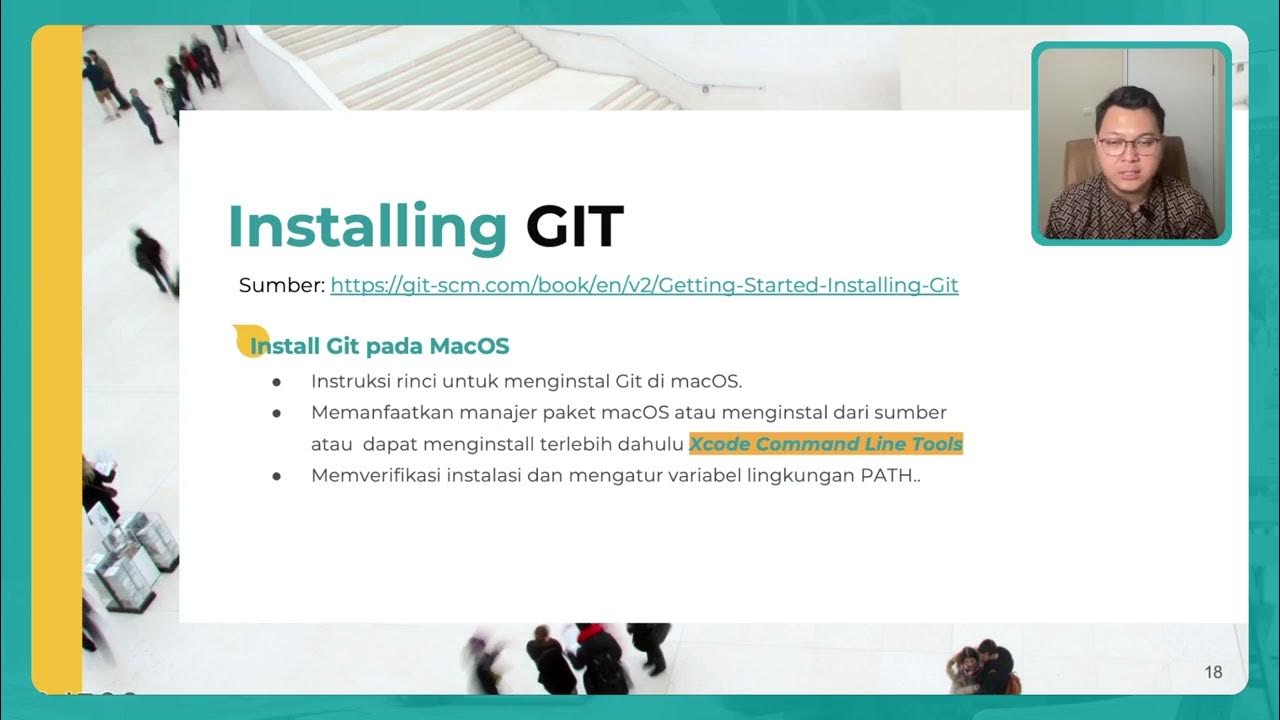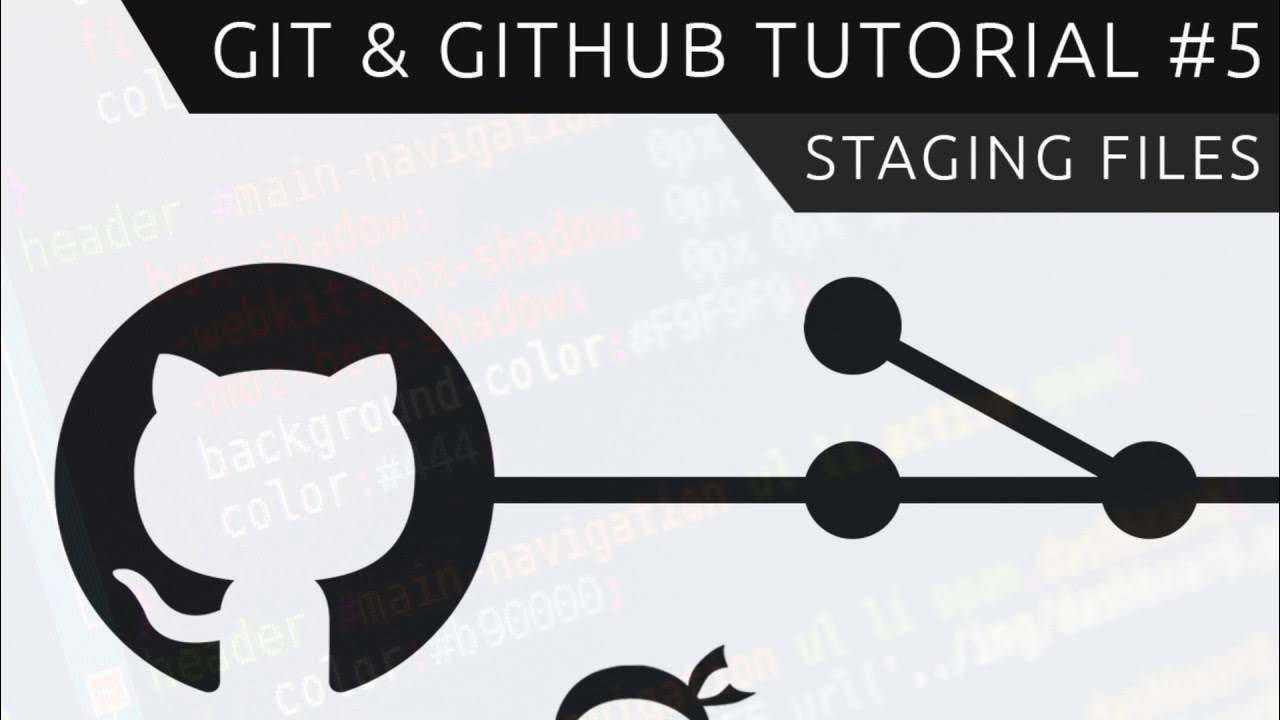Git Tutorial 1: What is git / What is version control system?
Summary
TLDRIn this tutorial, the concept of version control systems (VCS) is introduced, with a focus on Git. The video highlights the common problems faced without VCS, such as data loss due to hard disk failure, challenges in collaboration, and lack of version tracking. It then demonstrates how VCS, particularly Git, solves these issues by storing code in the cloud, enabling multiple users to work seamlessly, and keeping track of code versions. Git's distributed nature and integration with GitHub are also emphasized, making it the preferred choice for developers managing their code effectively.
Takeaways
- 😀 Git is a version control system (VCS) used to track changes in code and collaborate on projects.
- 😀 Without a version control system, code stored locally on a computer could be lost if the computer crashes or malfunctions.
- 😀 If multiple people need to work on the same code, transferring files via a pen drive and manually merging code can be inefficient and cumbersome.
- 😀 Without version tracking, it is impossible to revert to a previous working version of your code if something goes wrong.
- 😀 Version control systems solve the problem of lost code by storing it in the cloud, providing a secure and stable backup.
- 😀 Cloud-based VCS ensures that your code is always available even if your local computer breaks down.
- 😀 Collaboration on the same codebase is made easy in VCS by allowing multiple people to push and pull changes to and from the cloud, minimizing conflicts.
- 😀 Merge tools in VCS allow easy resolution of conflicts when multiple developers work on the same code simultaneously.
- 😀 Version control systems track changes through different versions, allowing users to roll back to earlier versions of their code easily.
- 😀 Git is a distributed version control system, which means version history is stored both locally on your computer and remotely in the cloud.
- 😀 Git's major advantage is that it works offline, allowing you to continue working on code even without internet access, syncing with the cloud when you're online.
- 😀 GitHub, the popular platform for hosting code, is powered by Git, making it one of the best choices for managing and sharing your code.
Q & A
What is Git?
-Git is a version control system that helps manage and track changes in code files, allowing developers to collaborate efficiently and safely.
What is a version control system (VCS)?
-A version control system is a tool that helps track and manage changes to files, typically source code, by recording different versions of the file over time. It also helps in managing collaboration between multiple developers.
Why is version control important?
-Version control is crucial because it prevents data loss, helps with collaboration, and tracks changes to code. It also allows developers to revert to earlier versions of code if something goes wrong.
What problems can arise when version control is not used?
-Without version control, developers can lose code if their computer fails, struggle with collaboration, and have difficulty tracking changes or reverting to previous versions.
How does Git solve the problem of hardware failure?
-Git solves this problem by storing code on the cloud, ensuring that it is backed up and safe, even if a local computer crashes or experiences hardware issues.
How does Git allow multiple people to work on the same project?
-Git allows multiple developers to work on the same project by storing a central copy of the code on the cloud. Developers can work on their own copies of the code locally and then sync their changes to the cloud. If there are conflicts, Git provides merge tools to resolve them.
What is version tracking in Git?
-Version tracking in Git refers to keeping a history of changes made to files. Every time a change is made, Git saves a new version, allowing developers to go back to any previous version if needed.
What are some examples of version control systems other than Git?
-Other than Git, popular version control systems include Mercurial and Subversion.
What makes Git different from other version control systems?
-Git is a distributed version control system, meaning each developer has a complete history of the code on their local machine, making it possible to work offline and sync when internet access is available.
Why is GitHub important in relation to Git?
-GitHub is a popular platform powered by Git, used to host and manage code repositories. It makes collaboration, version tracking, and sharing of code much easier for developers worldwide.
Outlines

This section is available to paid users only. Please upgrade to access this part.
Upgrade NowMindmap

This section is available to paid users only. Please upgrade to access this part.
Upgrade NowKeywords

This section is available to paid users only. Please upgrade to access this part.
Upgrade NowHighlights

This section is available to paid users only. Please upgrade to access this part.
Upgrade NowTranscripts

This section is available to paid users only. Please upgrade to access this part.
Upgrade NowBrowse More Related Video

Sub Topic 2

What is Version Control? - Git Guides (2020)

Day-9 | Git and GitHub | What is GIT ? | What is Version Control ? | #devops #2023 #github #gitlab

Tutorial Cara Penggunaan Git dan Github (Bahasa Indonesia)

O que é Git e GitHub? - @Curso em Vídeo HTML5 e CSS3

Git & GitHub Tutorial for Beginners #5 - Staging files
5.0 / 5 (0 votes)